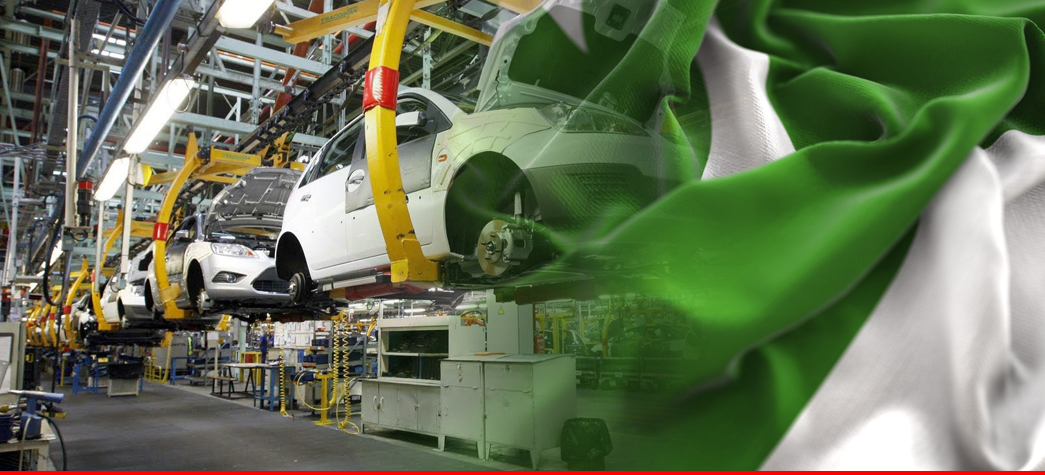قیمتوں میں مسلسل اضافے کے باوجود پاکستان میں آٹوموبائل انڈسٹری نے مالی سال 2017-18ء کے دوران گاڑیوں کی پیداوار میں ایک مرتبہ پھر نمایاں اضافہ دیکھا۔
پاکستان کے آٹوموبائل منظرنامے پر اب بھی دہائیوں سے موجود تین ادارے چھائے ہوئے ہیں یعنی پاک سوزوکی موٹرز، ٹویوٹا انڈس موٹرز اور ہونڈا اٹلس جبکہ الحاج فا آہستہ آہستہ جگہ بنا رہا ہے۔ پاکستان میں عوام کی قوتِ خرید میں کمی کے خطرناک اندازوں کے باوجود گاڑیوں کی پیداوار بڑھ رہی ہے۔ اعداد و شمار نے ظاہر کیا کہ پیداوار میں اضافہ صرف گزشتہ چند سالوں میں ہوا ہے جن میں سے مالی سال 2017-18ء میں 2،18،372 گاڑیاں بنائی گئیں جو 2016-17ء اور 2015-16ء میں بالترتیب 1،89،936 اور 1،79،944 تھا۔ اس وقت کار مینوفیکچررز کے پلانٹس میں کُل 3،00،000 گاڑیاں سالانہ بنانے کی گنجائش ہے۔ پیداوار کے یہ اعداد و شمار ملک میں ہونے والی سالانہ فروخت سے بھی زیادہ ہیں۔
پاکستان جیسے ملک میں جہاں مڈل کلاس ابھر رہی ہے، آٹوموبائل شعبے میں مارکیٹ کی توجہ زیادہ تر کم بجٹ کی گاڑیوں کے شعبے پر رہتی ہے جیسا کہ 800ccسے 1000ccتک کی گاڑیوں پر۔ پاک سوزوکی اس شعبے میں گاڑیاں بنانے والا واحد بڑا ادارہ ہے جو تین دہائیوں سے اس سیکٹر میں اجارہ داری کا لطف اٹھا رہا ہے۔ البتہ آٹوموٹِو ڈیولپمنٹ پالیسی (ADP) 2016-21ء نے نئے سرمایہ کاروں کے لیے کئی فائدے اٹھاتے ہوئے ملک میں مینوفیکچرنگ یا اسمبلنگ پلانٹ بنانا آسان کیا۔ یونائیٹڈ موٹرز اور ریگل آٹوموٹِو انڈسٹری کی مقامی مارکیٹ میں آمد سے مقابلے کا ماحول مزید سخت لگتا ہے۔
دوسری جانب مقامی آٹو سیکٹر میں بڑے اداروں کے پیداواری اعداد و شمار دیکھتے ہیں۔ پیداواری گنجائش پاک سوزوکی کو ہر سال 1,50,000 گاڑیاں بنانے کی اجازت دیتی ہے البتہ کمپنی مالی سال 2016-17ء میں 97,531 کے مقابلے میں 2017-18ء میں 1,23,846 گاڑیاں بنا پائی۔ 2015-16ء میں کمپنی نے تقریباً اتنی ہی گاڑیاں بنائی تھیں یعنی 97,409۔ مزید آگے بڑھیں تو پاک سوزوکی نے 2014-15ء اور 2013-14ء میں بالترتیب 76،861 اور 64،522 گاڑیاں بنائیں۔ اگر پیداوار کو مختلف حصوں میں تقسیم کریں تو 800cc میں آٹو مینوفیکچرر نے 2016-17ء کی 57،842 کے مقابلے میں 2017-18ء میں 69،078 گاڑیاں بنائیں۔ 2014-15ء اور 2013-14ء میں بالترتیب 54،333 اور 42،476 گاڑیوں کی پیداوار کے مقابلے میں 2015-16ء میں کمپنی کی بنائی گئی 800cc گاڑیوں کی تعداد 66،957 تھی۔

ہونڈا اٹلس کا پلانٹ سالانہ 55،000 گاڑیوں کی پیداواری گنجائش رکھتا ہے جبکہ اس نے 2016-17ء میں 36،531 کے مقابلے میں 2017-18ء کے دوران 42،710 گاڑیاں بنائیں۔ کار مینوفیکچرر 2015-16ء، 2014-15ء اور 2013-14ء میں بالترتیب25,061، 24,271 اور 23,605 بنا پایا تھا۔
ٹویوٹا انڈس ہائی-اینڈ گاڑیاں بنانے والا ایک اور بڑا آٹو مینوفیکچرر ہے جو ہر سال 80،000 گاڑیاں بنانے کی صلاحیت رکھتا ہے۔ البتہ کمپنی 2016-17ء میں 52،874 کے مقابلے میں 2017-18ء میں 51،218 کاڑیاں ہی بنا پائی۔ آٹو مینوفیکچرر کے لیے مالی سال 2015-16ء کا ذکر ضروری ہے کہ جس میں اس نے سب سے زیادہ کاریں بنائیں یعنی 57،474۔ کمپنی نے 2013-14ء میں 28،124 گاڑیوں کی پیداوار کے مقابلے میں 2014-15ء میں 51،392 یونٹس کا بڑا سنگ میل عبور کیا تھا۔
الحاج فا مقامی آٹو سیکٹر میں ذرا نیا نام ہے جس کی تاریخ کچھ زیادہ طویل نہیں۔ لیکن اب تک کمپنی مالی سال 2017-18ء کے دوران 598 گاڑیاں بنا چکی ہے۔ الحاج فا کی پیداواری گنجائش 15،000 یونٹس سالانہ ہے۔
ان مقامی آٹو مینوفیکچرر کے اعداد و شمار ظاہر کرتے ہیں کہ ٹویوٹا انڈس کے سوا سوزوکی اور ہونڈا دونوں ہر سال گاڑیوں کی پیداوار بڑھانے میں کامیاب ہوئے ہیں۔ یہ دیکھنا دلچسپ ہوگا کہ نئے اداروں کی صنعت میں آمد کے بعد ان دہائیوں پرانی کمپنیوں کا کیا ہوگا۔ خریدار کے نقطہ نظر سے دیکھیں تو یہ ایک مثبت علامت ہے کہ انہیں کسی بھی قیمت پر منتخب کرنے کے لیے زیادہ گاڑیاں ملیں گی۔ البتہ جس رفتار سے ہماری گاڑیوں کی قیمتیں بڑھ رہی ہیں، ایک عام آدمی کے لیے نئی گاڑی خریدنا اب ناممکن ہوتا جا رہا ہے۔ حکومت کو اس سلسلے میں اہم کردار ادا کرنے اور ایسی حکمت عملی اپنانے کی ضرورت ہے جو قیمتوں کو مناسب حد تک قابو میں رکھے۔
ایسی ہی دیگرخبروں کے لیے پاک ویلز پر آتے رہیے۔ اپنے خیالات نیچے تبصروں میں پیش کیجیے۔


